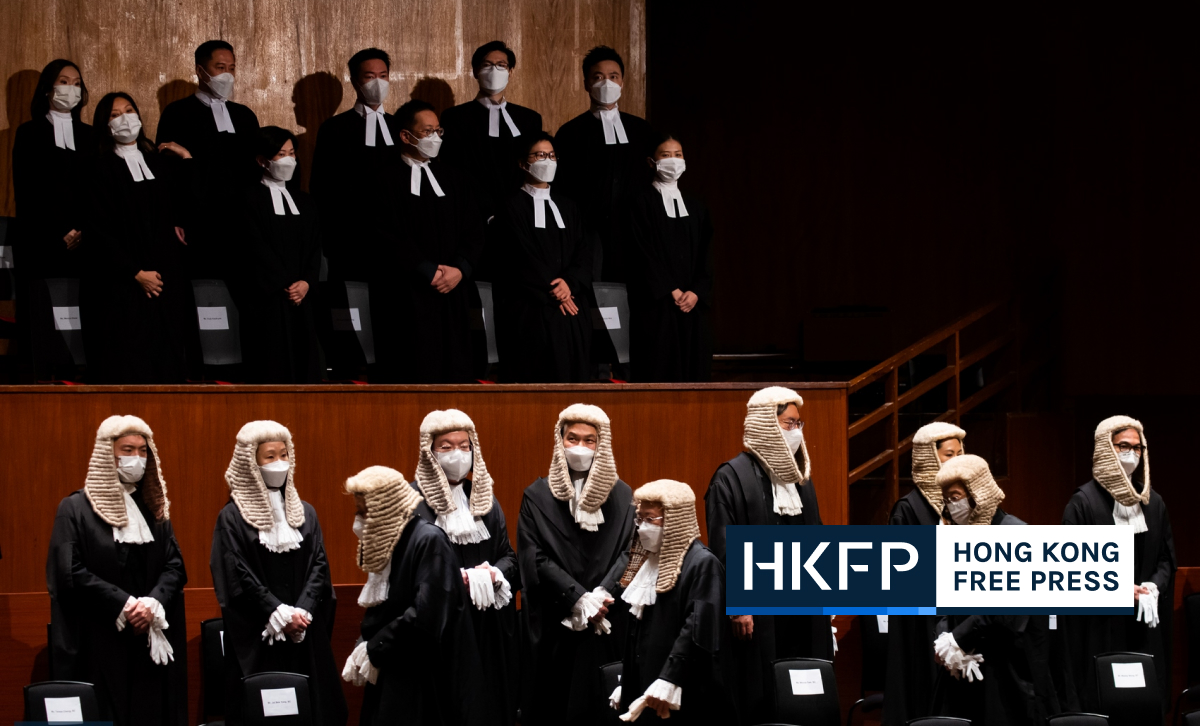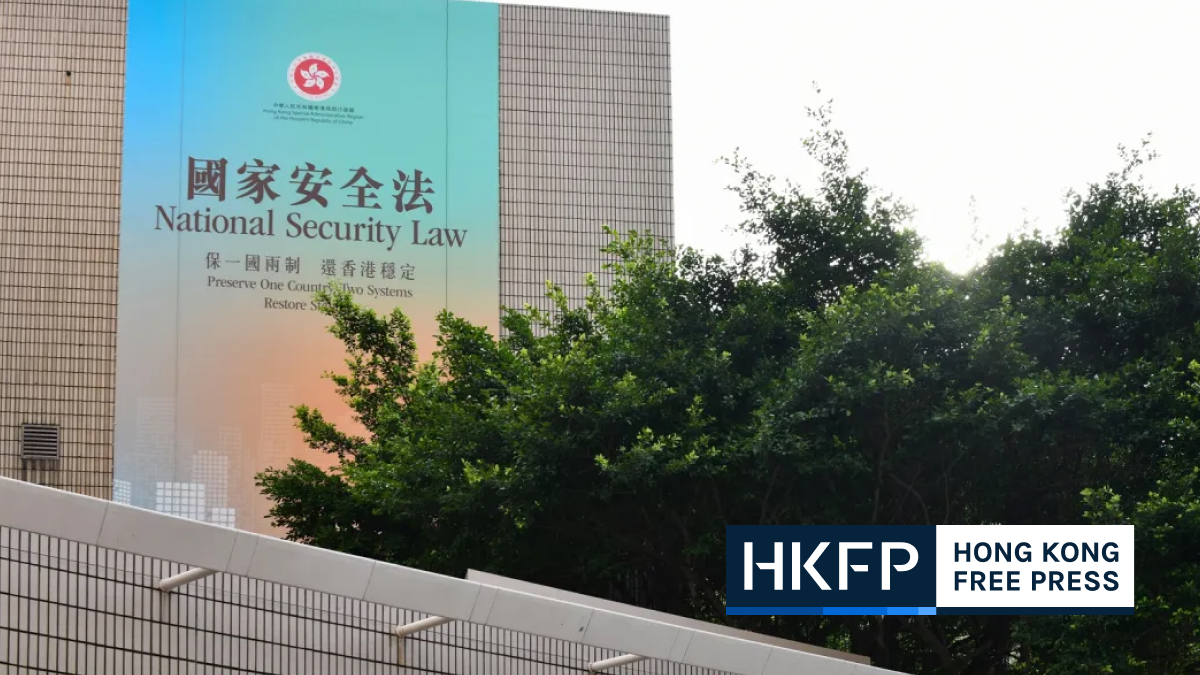In April, a planned Labour Day march was cancelled after one of its organisers was said to have gone missing for four hours. Several government-registered media outlets were barred from covering a National Security Education Day event attended by Xia Baolong, Beijing’s point man for Hong Kong affairs. The Chinese official told Hongkongers that protesting was “not the only way” for expressing views. He also warned against a “resurgence of street violence,” saying local authorities must remain vigilant about national security threats. In response, the city’s leader vowed to crack down on “hostile forces,” adding Hong Kong would always remember the “alarm bell” of the 2019 mass protests.
Labour Day march cancelled
A planned Labour Day march in Hong Kong was scrapped after one of its organisers was said to have gone missing for four hours last Wednesday morning.
The group attempting to organise the march released a statement on Facebook on Wednesday morning, saying that Joe Wong – one of the organisers and the former chairperson of defunct pro-democracy coalition the Hong Kong Confederation of Trade Unions (HKCTU) – had disappeared from his home and been unreachable since 7:30 a.m.

Over four hours later, another organiser and former HKCTU member, Denny To, released a statement announcing that Wong had “regained his freedom” at 11:30 a.m. To claimed that Wong had not been arrested, but had experienced an “emotional meltdown” and was under tremendous pressure.
Wong had withdrawn the application for the march, To said, which had yet to receive police approval. Citing Article 63 of the national security law – which prohibits the disclosure of information involved in national security cases – To said he was not able to publicise any further details.
Police confirmed that they had received the cancellation of the request for a Labour Day march. Anyone who gathered unlawfully on Hong Kong Island on May 1 could be charged with participating in an illegal assembly, which is punishable by up to five years in prison, a police spokesperson warned.

Hong Kong’s security chief had criticised the organisers for making “irresponsible” comments that played down the “safety risks” of public rallies. Wong and To had earlier urged the police not to “exaggerate” the risk of demonstrations being “hijacked.”
Chief Executive John Lee said in early April that the police chief has to ensure that public rallies will not violate national security or public safety, or the rights of those not participating in the demonstrations.
Media outlets barred from gov’t event
The Hong Kong government barred several government-registered media outlets from covering a National Security Education Day event last month, ignoring emails and evading questions by phone when challenged as to why.
Several mainstream and digital outlets, including HKFP and a wire service, were inexplicably rejected from attending an opening ceremony at the Convention and Exhibition Centre, officiated by top Chinese official Xia Baolong. Xia was on an inspection visit as the director of the Hong Kong and Macao Affairs Office of the State Council.
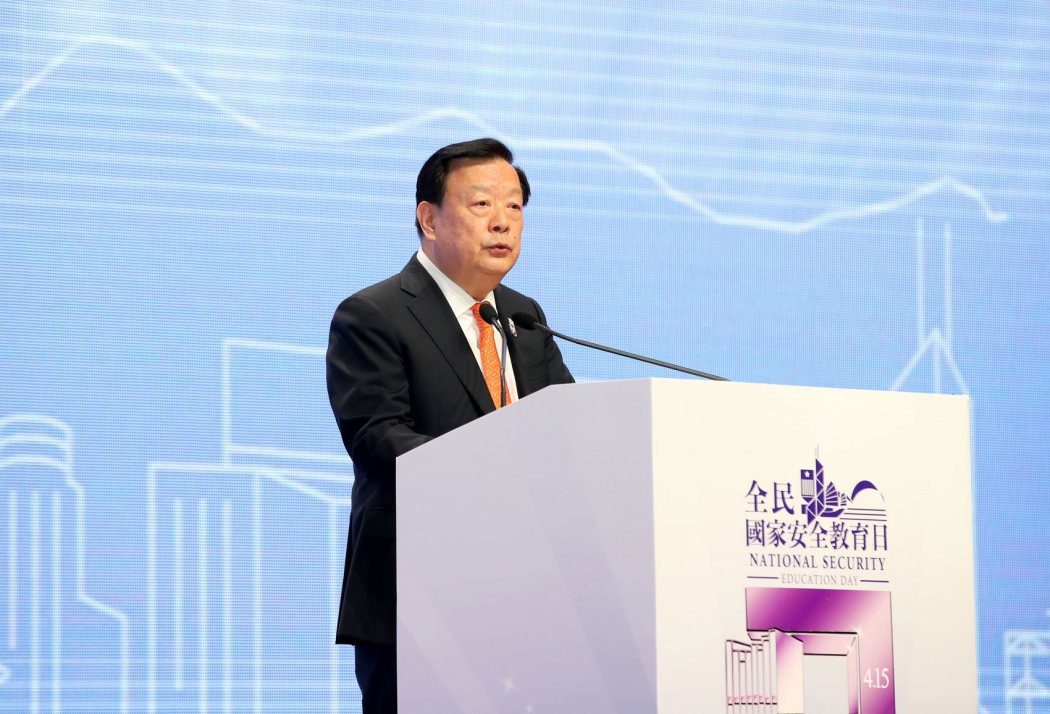
When repeatedly asked why by HKFP over four days, the Information Services Department (ISD) declined to reply in writing and stated in six phone calls that the “enquiry has been forwarded to the Committee for Safeguarding National Security of the HKSAR.”
It is the second time that media outlets have been barred from an event involving a high-profile mainland Chinese official. Last July, Japan’s Nikkei, Asahi Shimbun, and Kyodo News, Taiwan’s CTV, Getty Images in the US, Europe’s EPA as well as Hong Kong’s InMedia, PSHK, TMHK and HKFP were effectively barred from covering the inauguration of Chief Executive John Lee, which was overseen by China’s leader Xi Jinping. The ISD initially cited Covid-19 and capacity concerns.
National security threats still ‘lurk’ in society
Threats to national security still “lurk” in Hong Kong society, Chief Executive John Lee warned at the opening ceremony of the National Security Education Day last month.

The city must not underestimate the risks to national security as the world experienced a “major upheaval” with geopolitical tensions and rapid changes in international relations, the leader said. He claimed that a minority of “anti-China and anti-Hong Kong elements” continued to operate underground and were waiting for opportunities to “strike back.”
“Some people have been arrested recently for openly inciting violence online, which indicates that these threats to national security are still lurking in various parts of society,” Lee said.
Vows to crack down on ‘hostile forces’
Hong Kong should never forget the “alarm bell” of the 2019 anti-extradition bill unrest and the harm it brought to the city, Chief Executive John Lee said as he vowed to crack down on “hostile and destructive forces.”
Hong Kong must maintain its “hard-won” stability, with the administrative, legislative and judicial branches of the government making every effort to safeguard national security, Lee told the press after sending off Xia Baolong, director of the Hong Kong and Macao Affairs Office, who had concluded a six-day visit to the city.
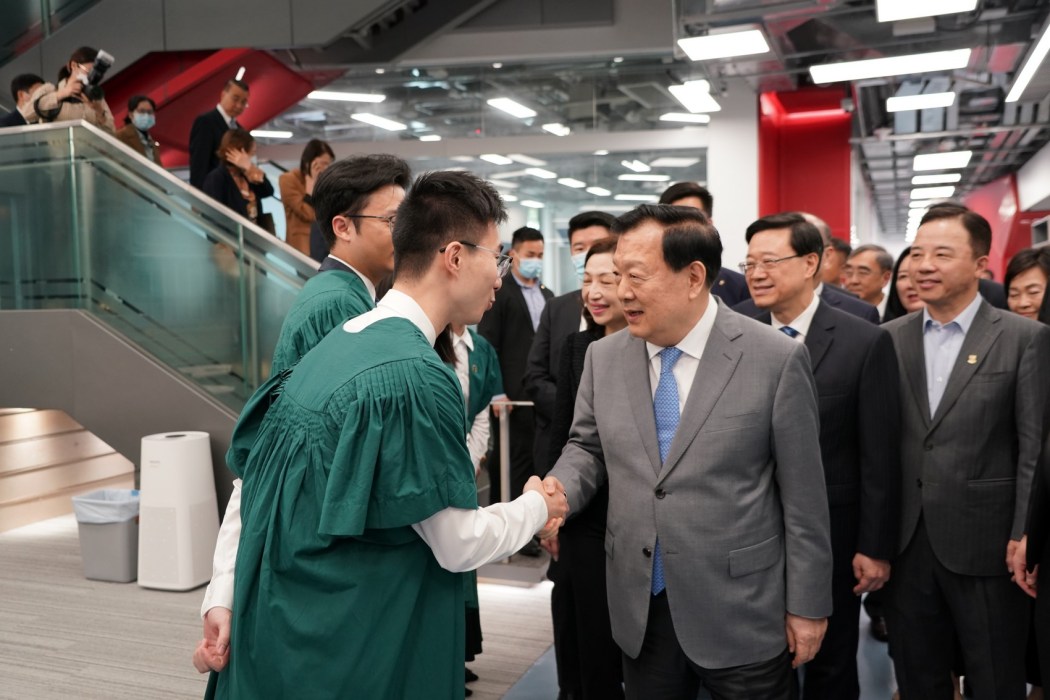
The Chinese official delivered a keynote speech on the National Security Education Day. He slammed the 2019 extradition bill protests as leaving a “permanent scar” on the city and resulting in “everlasting pain.” It was impossible for Hong Kong to erase such a “painful memory,” Xia said, adding the city must not descend into chaos again.
He also said protesting was not the only way for people to express their views.
‘Words can be weapons’
Director of Public Prosecutions Maggie Yang cited the cases of Tong Ying-kit and Ma Chun-man to explain why people would be found guilty of inciting succession under the Beijing-imposed national security law in an RTHK programme aired last month.
The government lawyer said incitement and conspiracy were Common Law offences used to prevent certain crimes from happening.
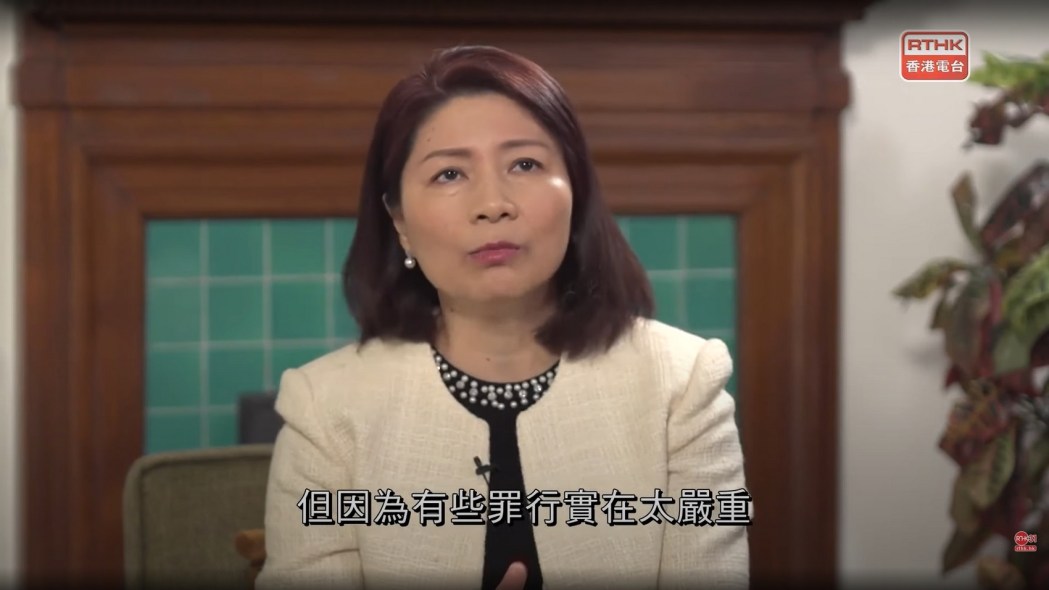
“Some offences are so serious that we have to nip them in the bud. In fact, I always tell people that ‘words are weapons’… If what a person says leads other people to commit serious offences, it is impossible for them to be unscathed by the law,” Yang said.
Appeals against national security acquittals
Hong Kong’s Department of Justice (DoJ) is planning to amend the law to allow appeals against not-guilty verdicts in national security cases tried at the city’s High Court, local media reported last month. To date, no one tried under the national security law has been acquitted of their charges.
Currently, the prosecution cannot appeal against a Court of First Instance decision to acquit a defendant, even in cases under the Beijing-imposed national security law. According to existing legislation, the justice department can raise questions of law to the Court of Appeal, but the appeal court’s decision would not impact the initial not-guilty verdict.
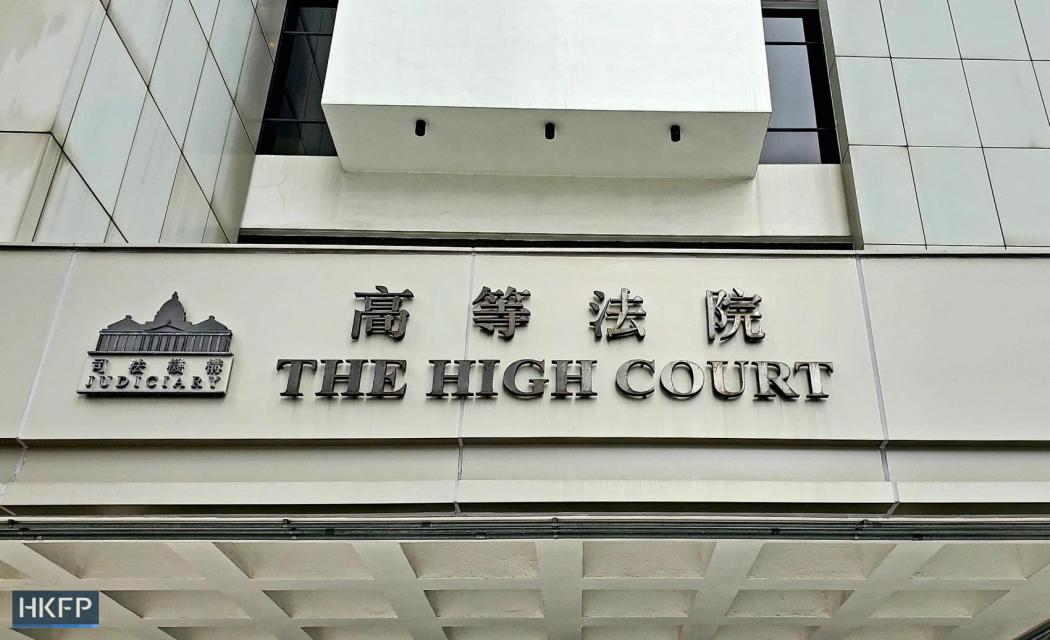
Local outlets including Ming Pao and HK01 reported that the DoJ was proposing to amend the Criminal Procedure Ordinance such that the prosecution could “appeal by way of case stated,” meaning that the appeal court could overturn an acquittal and order a retrial.
Appeal by way of case stated are currently only available for cases handled at magistrates’ courts and the District Court.
‘Step up’ screening of library materials
Hong Kong government auditors called on the department managing the city’s public libraries to “step up efforts” to make sure library materials do not threaten national security.

In a report published last Wednesday, the Audit Commission said there was a “[n]eed to step up efforts in examining library materials for safeguarding national security and talking follow-up actions.”
The Leisure and Cultural Services Department (LCSD) launched a preliminary review of library materials for “national security risk considerations” in 2021. “Since then, LCSD has been conducting examination of the materials identified in the preliminary review for taking necessary follow-up actions,” the report read.
The commission said that Hong Kong Public Libraries had already completed the review of library books, with those deemed “manifestly contrary” to national security removed. Follow-up work was still in progress as of February, it added.
Flag day fundraisers permits
The application form for holding charitable flag day fundraisers in Hong Kong was updated to warn organisers not to use proceedings for acts or activities contrary to national security, otherwise they risk having their permits revoked.

The Social Welfare department said it updated the clauses to “provide a more specific explanation of the relevant requirements,” adding that it had not found any organisations who have breached such terms.
47 Democrats trial
The high-profile national security trial concerning 47 pro-democracy figures who stand accused of conspiring to commit subversion continued in April.
Former district councillor Andrew Chiu, one of the 31 defendants who pleaded guilty earlier, finished testifying against his fellow democrats. During his 17-day testimony as a prosecution witness, Chiu admitted to a judge that an “anti-government” tendency emerged during the course of organising an unofficial primary election in 2020.
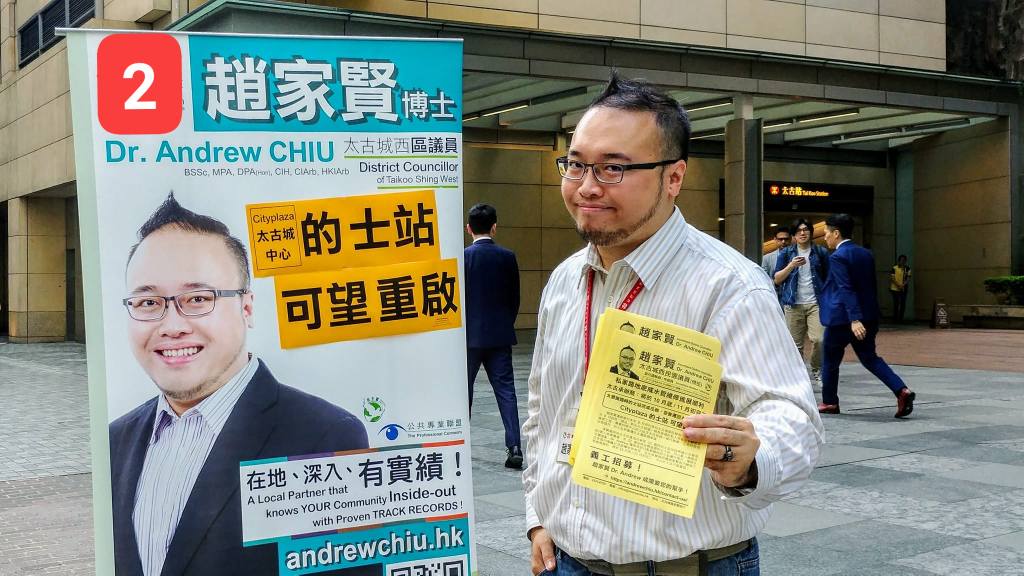
He also told a panel of three designated judges presiding over the case that an online campaign which called on people not to vote for candidates who failed to join an unofficial legislative primary poll would have violated the city’s election laws.
During the trial hearing in April, prosecutors alleged that former lawmaker Dennis Kwok was a “co-conspirator” in the city’s largest national security case against 47 pro-democracy figures. The ex-Civic Party politician became the latest co-conspirator to be named by the prosecution. Earlier, it was alleged that former district councillor Choy Chak-hung and ex-chief officer of pro-democracy group Power for Democracy Luke Lai were co-conspirators in the case.
The closely-watched trial, which is estimated to last for 90 days, was adjourned to May 4. According to local media, the delay came after the prosecution told the court last week that they just managed to unlock the phone of defendant Ben Chung, who is set to testify as the third accomplice witness.
Stand News trial
Hong Kong journalist Chung Pui-kuen completed his testimony over 17 allegedly “seditious” articles published by defunct news outlet Stand News after 36 days on the stand. The trial, which began last October and was scheduled to last for 20 days, will hear closing arguments in June.

Foreign lawyer’s visa
Hong Kong pro-democracy media tycoon Jimmy Lai filed a legal bid against the government decision to reject any further work visa applications from King’s Counsel Timothy Owen, whom he had hired for his national security case.
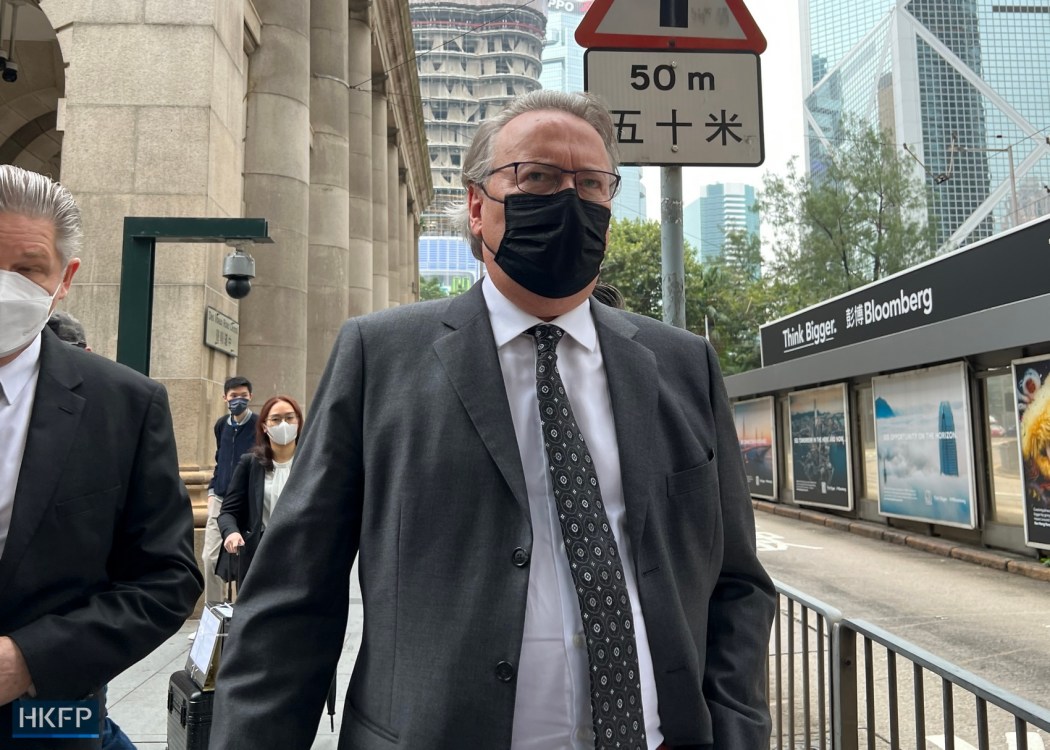
Lai, 75, who founded the defunct pro-democracy tabloid Apple Daily, faces a total of four charges under the Beijing-imposed national security law and the colonial-era sedition law.
100% conviction rate
Secretary for Security Chris Tang hailed last month the 100 per cent conviction rate in cases concerning national security. He said the arrest and prosecution work over the past three years was done “very seriously.”
“All 71 people who have gone through judicial proceedings were convicted. Only a small number of people in Hong Kong were involved,” Tang said at a launch ceremony of a new programme by government-funded broadcaster RTHK about the Beijing-enacted legislation.
The city’s justice chief Paul Lam said in early April that the number of arrests and convictions since the implementation of the national security law in Hong Kong was “very small.”
Student denied bail
Student Cheung Ho-yeung, 23, accused of conspiracy to commit terrorist activities under the Beijing-imposed national security law was denied bail at a Hong Kong court last month.
Cheung is accused of conspiring with others “with a view to coercing” the Central and Hong Kong governments, or “intimidating the public in order to pursue political agenda, to organise, plan, commit, participate in or threaten to commit terrorist activities” between April 1, 2021 and July 5, 2021.
He is facing an alternative charge of “conspiracy to cause explosions likely to endanger life or property.”
Returning Valiant arrest
Hong Kong’s national security police arrested a man accused of helping a group of fraudsters allegedly linked to “a local extremist gang” – an apparent reference to a self-proclaimed revolutionary organisation called Returning Valiant.
The 47-year-old was arrested in Western District on suspicion of conspiracy to defraud. Police said the man allegedly helped a fraud syndicate submit false information to a local bank and borrow a total of HK$4.7 million under the “Special 100% Loan Guarantee” scheme, the government’s Covid-19 relief measure for small and medium-sized companies.
The man was released on police bail.
UK report on press freedom
The Hong Kong government slammed a report by a UK all-party parliamentary group that said the Beijing-imposed national security law had been used to “stifle free media and target individual journalists, which has crushed freedom of expression and media pluralism in Hong Kong.”

The report, titled “Media Freedom in Hong Kong: the case of Jimmy Lai and Apple Daily,” was published by the UK All-Party Parliamentary Group on Hong Kong earlier in April. The group began an inquiry in February into press freedom in Hong Kong, and on the national security case against pro-democracy media tycoon Jimmy Lai.
Emigrated journalists
Hong Kong journalists who have emigrated face a number of difficulties when trying to start their careers in media overseas, according to a report published by an overseas journalists’ body.
However, most of those who responded to the small-sample poll told researchers that they had no plans to return to Hong Kong and did not regret their decision to leave the city despite the challenges.
UN rights expert urges China to reconsider security law
China should conduct a “review and reconsideration” of Hong Kong’s national security law to ensure it is “in compliance with China’s international human rights obligations,” United Nations human rights expert Margaret Satterthwaite said last month.
“Provisions of the [security law] could undermine the independence of the Judiciary in the HKSAR and restrict access to justice in Hong Kong,” Satterthwaite wrote to China’s permanent representative to the UN Office in Geneva.
Student arrested under security law while abroad
A top Japanese official said the arrest of a Hong Kong student under the city’s national security law “undermined people’s trust in One Country, Two Systems,” after she allegedly posted pro-independence messages online whilst in Japan.
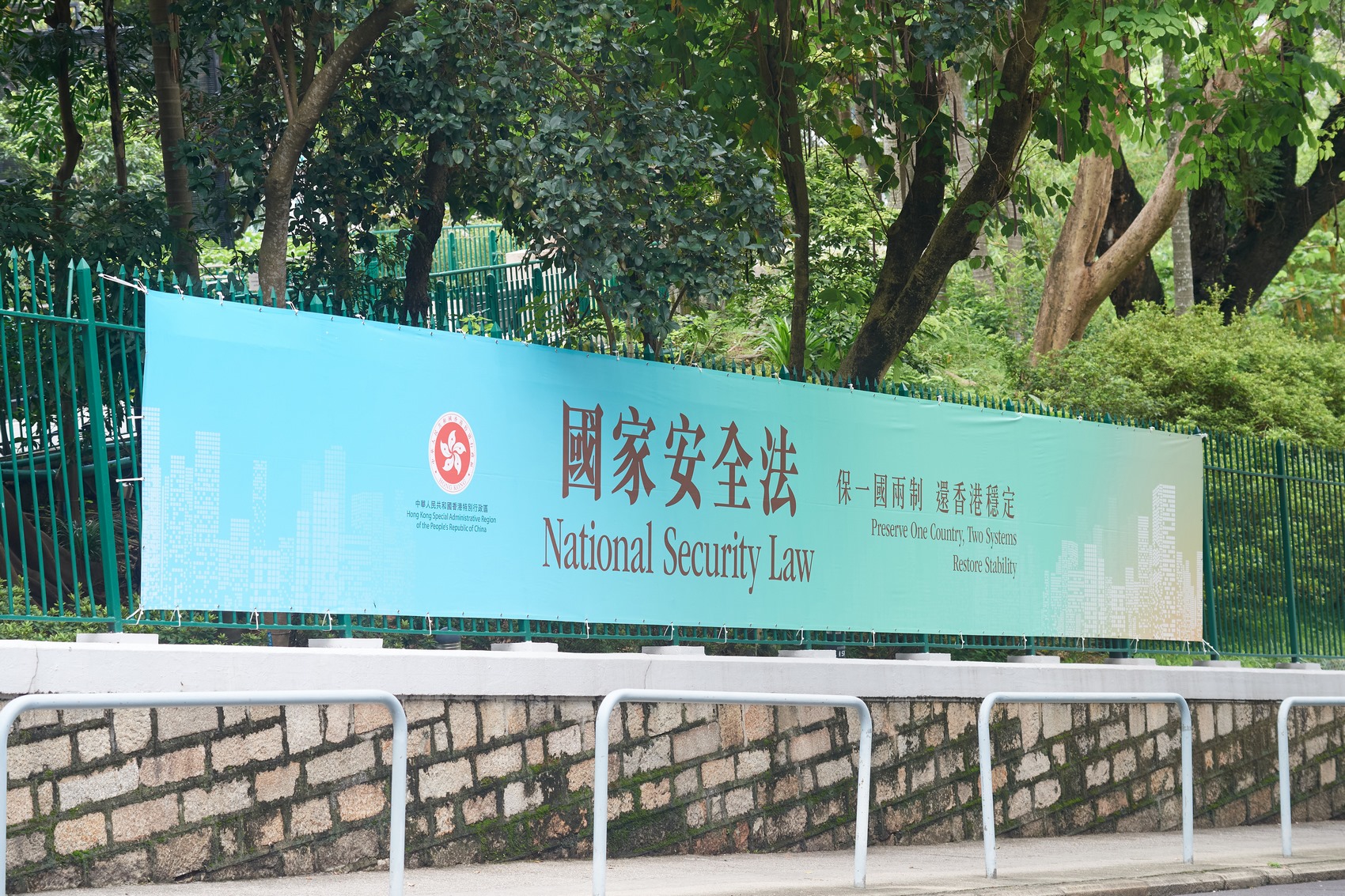
Japanese media reported that Hong Kong police arrested a 23-year-old student in March for allegedly inciting secession under the Beijing-imposed national security law. The student reportedly published social media posts whilst she was studying in Japan.
National security hotline
Over 400,000 reports have been made to the national security hotline, the police said, adding that the figure showed Hongkongers supported the security law.
The hotline was set up in November 2020 “with a view to facilitating members of the public to provide or report national security related information,” according to the police’s website.
Arrest and prosecution tally
As of April 5, 251 people had been arrested over suspected acts and activities that endangered national security since the legislation was enacted on June 30, 2020, the Security Bureau told HKFP. Among those, 151 people and five companies have been charged.
According to the Bureau, 71 people have been convicted or are awaiting sentencing; among them 29 have been convicted or are awaiting sentencing under the Beijing-imposed law. It did not specify the offences committed by the remaining 42 defendants.
Support HKFP | Policies & Ethics | Error/typo? | Contact Us | Newsletter | Transparency & Annual Report | Apps













